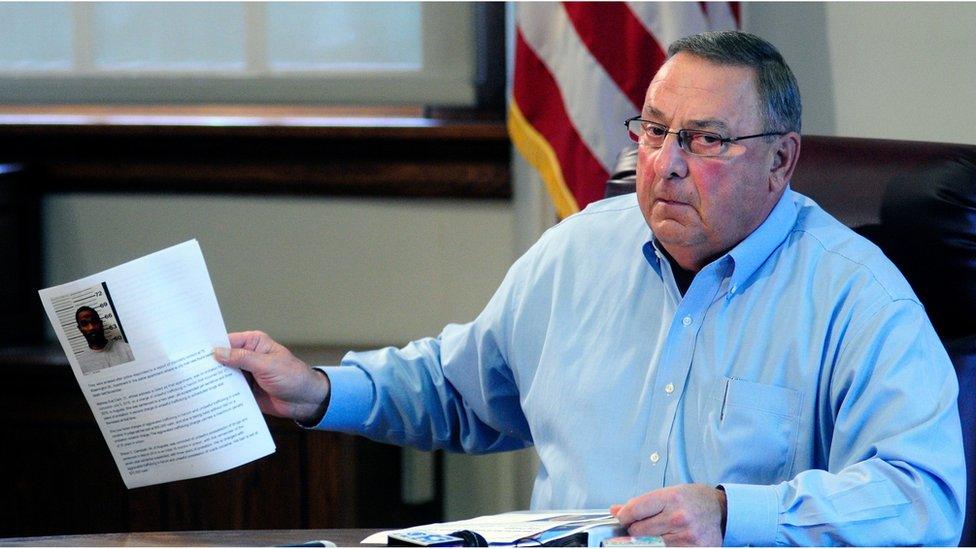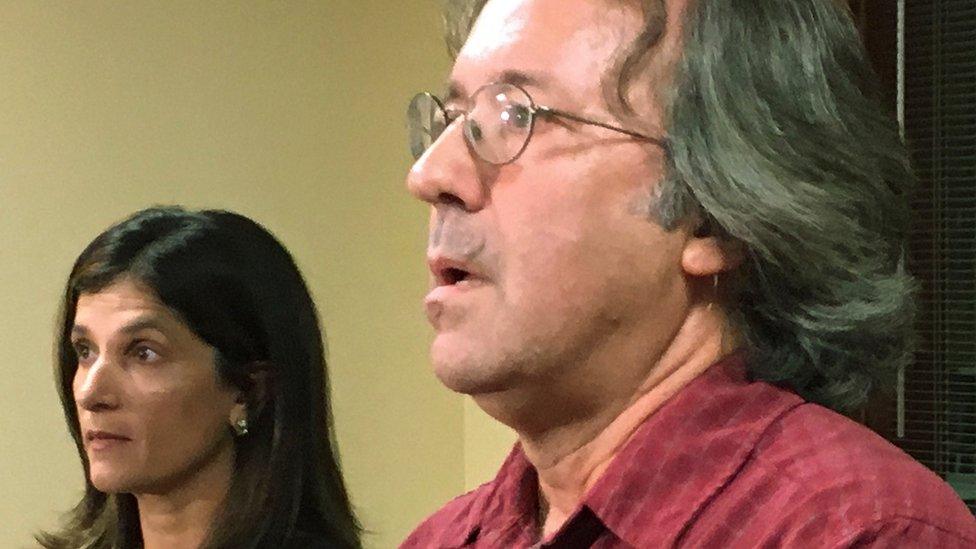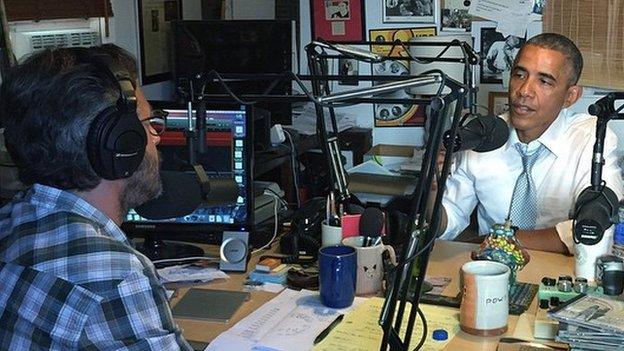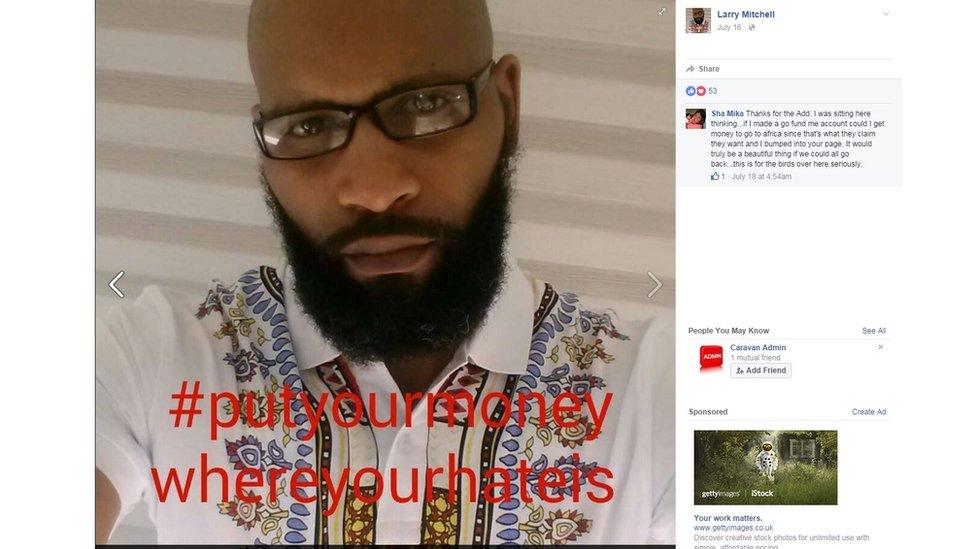Maine Governor Paul LePage criticised for 'racist' remarks
- Published

Governor LePage held up mugshots he said showed that most men arrested in Maine on drug charges were black
The governor of Maine has said that people of colour were enemies of his state, and appeared to suggest they should be shot.
Speaking about Maine's effort to combat drug crime, Paul LePage said that "the enemy right now... are people of colour or people of Hispanic origin".
"When you go to war... and the enemy dresses in red and you dress in blue, then you shoot at red," he said.
Leading Democrats have urged him to resign.
Mr LePage made the comments while seeking to clarify remarks he made earlier in the week which were criticised as racist.
The press conference capped a controversial 72 hours for the Republican governor.
WEDNESDAY
Mr LePage was asked about a statement he made in January, in which he blamed the state's heroin problem on "guys by the name D-Money, Smoothie, Shifty" who "come from Connecticut and New York".
"They come up here, they sell their heroin, then they go back home. Incidentally, half the time they impregnate a young, white girl before they leave," he said.
Speaking on Wednesday, he denied it was racist, but said that since January he had been putting together a binder cataloguing drug arrests in the state, and that "90-plus per cent of those pictures in my book, and it's a three-ringed binder, are black and Hispanic people".
Asked by reporters to provide the binder, Mr LePage replied: "Let me tell you something: Black people come up the highway and they kill Mainers. You ought to look into that."
He then stormed off, telling the reporters: "You make me so sick."
Maine daily newspaper the Portland Press Herald has reportedly filed a Freedom of Information request for the governor's binder.
THURSDAY
A reporter appeared to suggest to Mr LePage that Democratic state representative Drew Gattine had called him a racist.
Mr LePage called Mr Gattine and, when he was unable to reach him, left him an abusive, expletive-laden voice message.
The recording was released by the Portland Press Herald, external.
He later invited reporters from the Press Herald and WMTW TV channel to an interview to explain the voice message, and told them he wished he could shoot Mr Gattine in a duel.

Mr Gattine spoke to reporters about the incident, alongside representative Sara Gideon
"I'd like him to come up here because, tell you right now, I wish it were 1825," Mr LePage said.
"And we would have a duel, that's how angry I am, and I would not put my gun in the air, I guarantee you... I would point it right between his eyes, because he is a snot-nosed little runt and he has not done a damn thing since he's been in this legislature to help move the state forward."
Rights group the American Civil Liberties Union (ACLU) said it had filed a freedom of information request for records related to the arrests of black and Hispanic people in the state.
Its executive director, Alison Beyea, said Maine police were nine times more likely to arrest people of colour for selling drugs than white people, even though white people were just as likely to commit drug offences.
FRIDAY
The Portland Press Herald, external published FBI statistics which show that 1,211 people were arrested on charges of drug sales or manufacturing in Maine in 2014. Of those, 170 - 14.1% - were black, and almost all the rest were white.
At a State House press conference, external, Mr LePage said he was "enormously angry" at being called a racist, and restated his earlier remarks which cast Maine's drug problem in racial terms.
He said: "When you go to war, if you know the enemy and the enemy dresses in red and you dress in blue, then you shoot at red."
He added: "You shoot at the enemy. You try to identify the enemy and the enemy right now, the overwhelming majority of people coming in, are people of colour or people of Hispanic origin."
Leading Democrat figures are now calling for the governor to step down.
Representative Sara Gideon of Freeport, the assistant House Democratic leader, said: "We strongly and regretfully feel that he is unfit to serve as governor of the state of Maine right now.
"We have real concerns and reservations about how we move forward together as lawmakers as well as Maine people."
- Published8 January 2016

- Published22 June 2015

- Published20 July 2016
